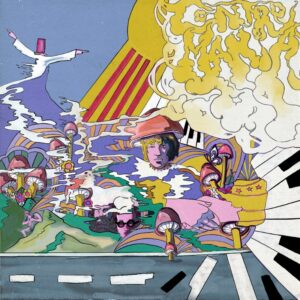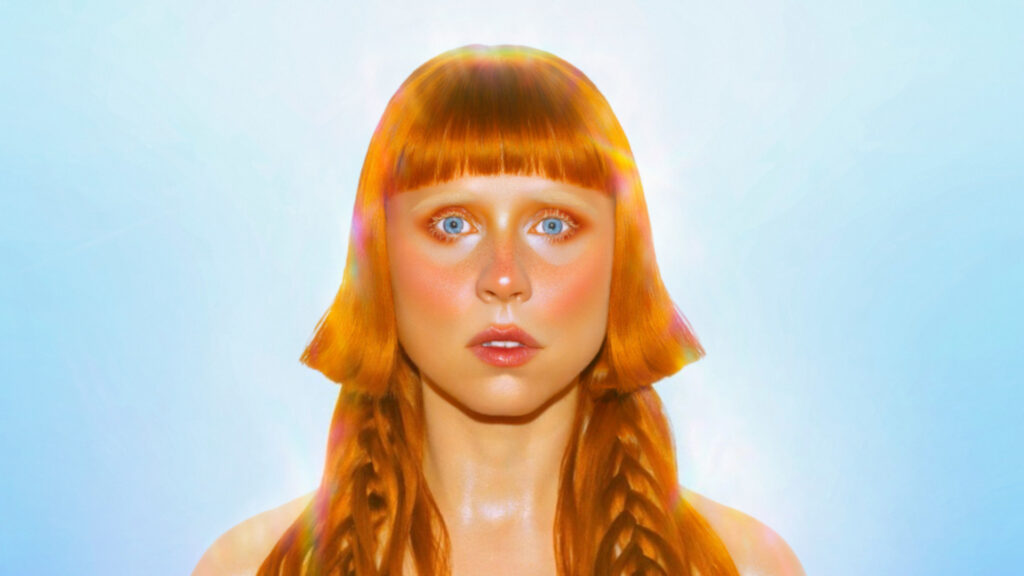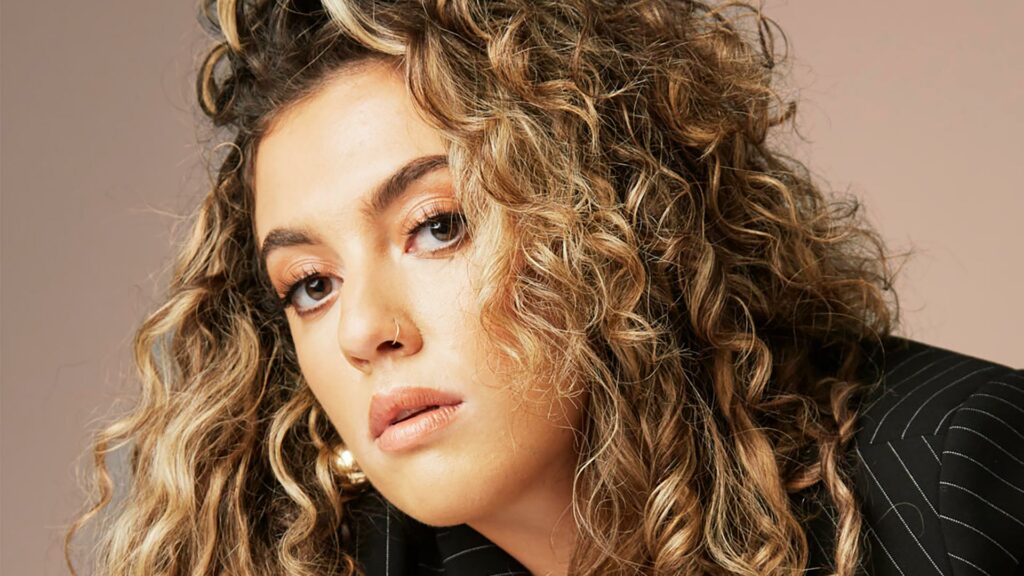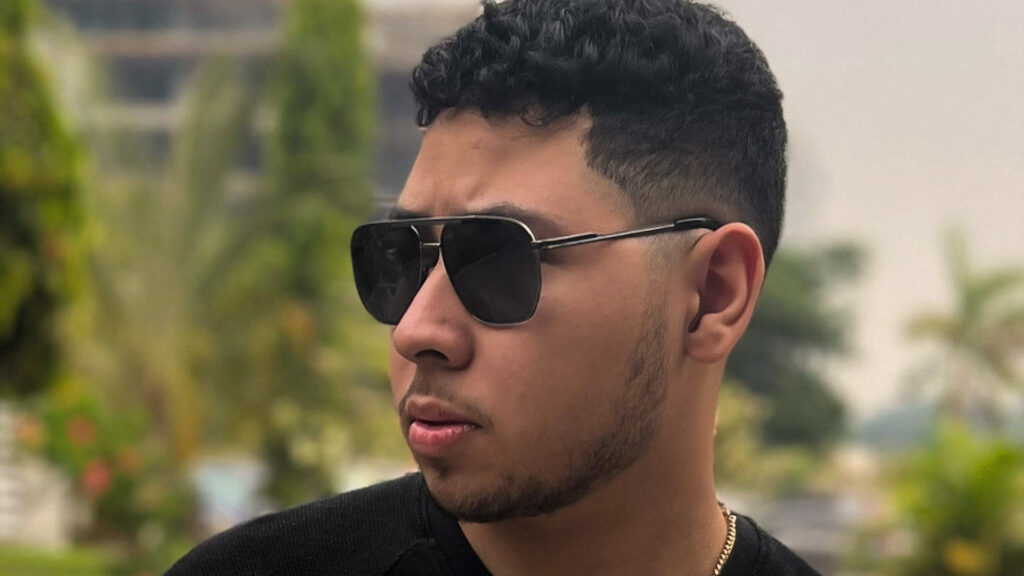Having just returned from a tour in Spain, CANKI (Juan Obregoso) does it all – performing, recording, mixing, producing. You name it, he does it. Originally from Buenos Aires, Argentina, CANKI evokes a style of music referred to as neopsychedelia that is truly fascinating to the unfamiliar ear. The musical multitasker describes himself as a ‘control maniac’, which is perhaps why he takes on so many creative roles. I guess it’s like being the overly meticulous chef who insists on doing everything himself – sure, it takes forever, but the end result is a gourmet symphony of perfection. I was lucky enough to catch a spare five minutes from his incredibly busy schedule to delve deeper into his unique musical processes.
You’ve been heavily involved in the underground music scene in Buenos Aires, working with various bands as a musician, producer, and mixer. How has your experience in the underground scene influenced your approach to music production and your solo project?
“Working with bands and solo artists has influenced me a whole lot. Every person has a unique way of approaching music, of composing and arranging it. With every work I do, I learn something and become a mirror for the artist I’m working with. Then, I have to become a mirror for myself, to project what I have inside, as I try to do with the people I work with. Every lesson, tool, and idea I get with someone comes back round to me.”
Your music is described as neopsychedelia, ranging from experimental instrumental compositions to more pop-oriented songs. How has your musical style evolved, and how have you navigated between these different sonic landscapes in your solo project?
“I think there are two types of artists: the ones that always make the same music/same sound, and the ones that need to change, explore, mutate. I guess I’m in the second group. I started making more ambient-orientated music, instrumental and experimental music, and then slowly rotated to a more pop song-orientated style. Although I still see the same focus in intricate melodies and complex textures, besides some tweaks, I still have my same old way of creating music. Miles Davies said that ‘style is the sum of imperfections’, and I like that idea, so I think I like knowing my flaws.”
As a musician and producer, you’ve taken on the roles of recording, mixing, and producing albums for both your solo project and other bands. How do you balance the creative process with the technical aspects of production, and what drives your passion for being hands-on in every aspect of the music-making process?
“I don’t see a great deal of a difference between technical and creative processes and tools. Even more so now, since you have more options than ever before for making music. Where one starts, the other ends, and I guess I’m in between both. On the other hand, it’s hard to be hands-on in every aspect of music making, since you can easily get lost in labyrinths of decision-making, looking directly at yourself in the mirror with no one to relay your ideas to. That’s the way the name of my last album, ‘Controlmania’ turned out – I started laughing at myself for being unable to let other people give suggestions on my audio, arrangement, and style. Moving forward, I want to work with different producers and collaborators, and I think it’s interesting to change patterns, to change methods and get different results.”
Throughout your career, you’ve toured extensively as a musician, immersing yourself in the live music experience. How has performing live influenced your approach to recording and producing music, and do you find that your live performances inform your studio work in any way?
“I used to think making a record is like filming a movie or performing in a play. There’s some kind of correlation – the same language, but the energy is quite different. When playing live you just get one take, so you need to be prepared in every way. But when recording and producing, you’re just looking for an idea, searching, exploring. There’s also something about playing live where you get to see people’s reaction in that exact moment, so you can test how audience members react to your different musical material. It’s like a two-way relationship, in the sense that I try to get a feeling, a feeling of being alive, to transmit that emotion and make people feel it in their own way.”
Your solo project spans four records, each showcasing your growth and experimentation as an artist. Can you share some insights into the themes or inspirations behind each record, and how they reflect different stages of your artistic journey?
“My first album represents a state of isolation, kind of like an alchemic transmutation of materials into different moods and styles. It’s leitmotif music, where melodies repeat across the album but in different contexts. My second one is based on a trip that I made to Costa Rica. Being completely overwhelmed by its natural beauty made me want to represent it through sound and music: beaches, natural reservoirs, and crazy wildlife all combined in my head portrayed as music. The third one was made during quarantine – a more bedroom poppy vibe, exploring songs and simplifying my language. The last one, ‘Controlmania’, is a more full-on production, more like a band playing symphonies with an original approach to instrumentation, a melancholic yet happy trip.”
Your music combines elements of psychedelia with your own unique experimental twist. How do you approach incorporating these influences into your music, and what do you hope listeners take away from the sonic tapestry you create?
“I try to create a full experience for the listener and I want them to feel surrounded by sound as something plastic – some kind of place you feel you can almost touch, but elusive enough to disappear when you try it. Music is an illusion, it only exists in our heads, but it’s one of the more real things we have in life. I think melodies and harmonies are the key elements of my pursuit, and that’s always the puzzle I try to resolve every time I’m writing. I’ll keep exploring, composing, recording, and touring until I’m dead.”
Cover photo by Manuel Cascallar
Next story



